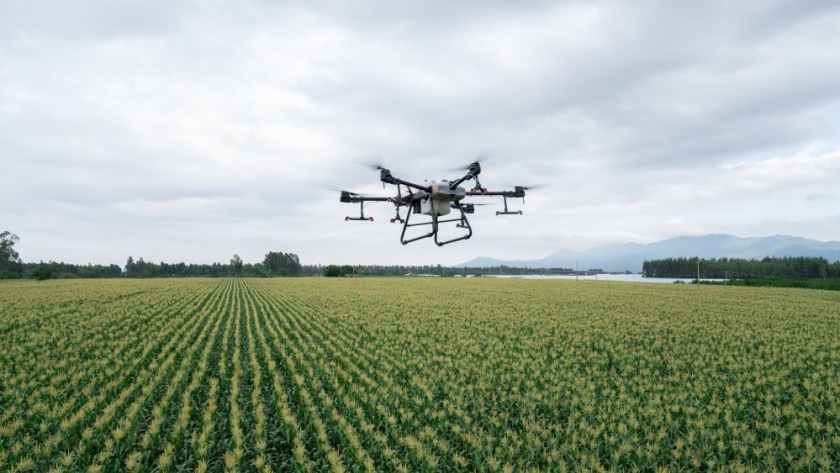
By Agroempresario.com
The ongoing trade war between the United States and its key trading partners, particularly China, has had far-reaching implications for various industries. Among them, the agtech sector faces both potential risks and opportunities due to these tariff measures. A recent report by Pitchbook indicates that the agtech sector in the U.S. is likely to experience “significant impacts” from tariffs put in place by the Trump administration. In Canada, agrifoodtech startups are also bracing for potential consequences if additional tariffs are enacted next month.
The current situation is fluid, with some analysts speculating that President Trump is using the threat of tariffs as a negotiating tool, rather than imposing blanket tariffs across the board. However, the 10% tariff on all goods coming from China has already taken effect, which prompted retaliatory tariffs from China on various U.S. products, ranging from agricultural machinery to crude oil. Additionally, a 25% tariff on steel and aluminum imports is set to be implemented on March 12, which suggests that the trade war is indeed more than just a rhetorical move.
Further complicating matters, Trump has announced plans to impose reciprocal tariffs on several trading partners, taxing goods at the same rate those countries apply to U.S. products, though without a set timeline. This announcement only adds to the uncertainty for agtech companies, which now find themselves navigating an increasingly complex and unpredictable trade environment.
For companies in the agtech space, the impact of tariffs is expected to be mixed. On one hand, there could be opportunities. Firms that provide real-time data, AI-driven risk modeling, and scenario planning may experience increased demand as food and agriculture companies look to optimize their supply chains in the event of a new tariff regime. Some U.S. companies in the agricultural drone space may also become more competitive as Chinese imports become more expensive, giving them an edge in the market.
However, Pitchbook highlights the primary concern for agtech companies, which is the impact of tariffs on operational costs. Increased tariffs on essential imports could lead to higher prices for machinery, inputs, and technology. This could result in reduced profit margins and force companies to adjust their prices accordingly. Additionally, supply chain disruptions could lead to delays and potential shortages of critical components, further complicating the situation.

The greatest concern lies with companies that rely on machinery, IoT devices, and sensors, much of which is imported from China. As Pitchbook notes, a significant portion of agricultural machinery and electronic components are sourced from China, meaning that U.S.-based companies could be severely affected by higher tariffs on these imports. Additionally, precision agriculture tools and farm management software may also see price hikes as a result of these tariffs.
In Europe, countries such as Germany and Italy are key suppliers of high-precision farming equipment, and the introduction of tariffs could raise prices in the U.S. market. When it comes to fertilizers and agrochemicals, the EU is a notable exporter to the U.S., while much of the U.S. potash (a key ingredient for fertilizers) comes from Canada. The U.S. does have its own potash deposits, but mining it domestically is more expensive than importing it from Canada. Consequently, tariffs on these products could result in a substantial increase in costs for U.S. agricultural businesses.
For Canadian agrifoodtech startups, the situation is even more precarious. The potential imposition of a 25% tariff on goods coming from Canada into the U.S., set to take effect in March, could have disastrous effects. The Trump administration has signaled that these tariffs could be enforced if Canada fails to address concerns related to drugs and illegal immigration. According to Dana McCauley, CEO of the Canadian Food Innovation Network, such a tariff would be “catastrophic” for many Canadian startups. “It’s so wasteful and disheartening,” she remarked, noting that companies focused on innovation would now be forced to redirect resources into scenario planning and navigating trade uncertainties.
A significant portion of the food industry relies on cross-border trade between the U.S. and Canada. McCauley shared an example from her time in Montreal, where she worked for a company that made organic products for U.S. grocers. The company would import U.S. organic dairy ingredients to Montreal, process them, and then export the finished products back to the U.S. McCauley highlighted that such tariffs would essentially tax both the raw materials as they entered Canada and the finished goods as they entered the U.S., making it economically unfeasible for companies to operate efficiently across the border.
Given the current uncertainty, many Canadian agrifoodtech startups are scrambling to develop contingency plans. Some have even considered relocating their operations to the U.S. temporarily, while others are exploring the possibility of working with U.S.-based toll manufacturers for short-term production. However, McCauley stressed that a prolonged trade war would not be sustainable, as both U.S. and Canadian economies would ultimately be negatively impacted.
From an investment perspective, Pitchbook suggests that the uncertainty caused by tariffs could lead investors to become more cautious when funding Canadian startups targeting the U.S. market. This could prompt these companies to reevaluate their business strategies, revise their pitch decks, and look for opportunities in other markets such as Europe and Asia. While these markets are logistically more difficult to access, they offer viable alternatives that could help mitigate some of the risks posed by the ongoing trade conflict.
